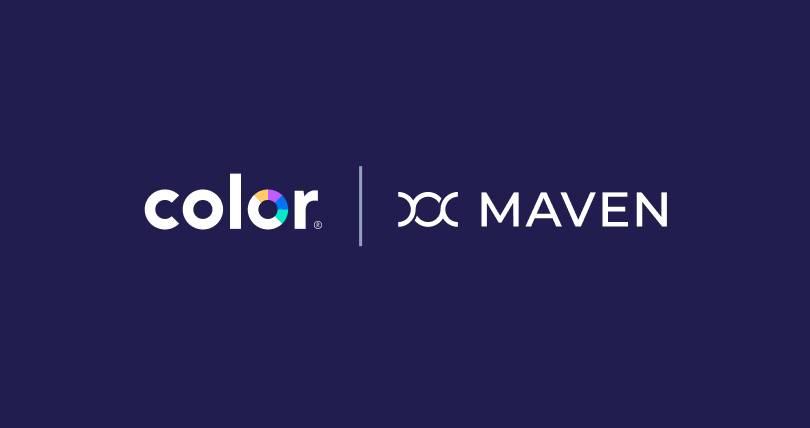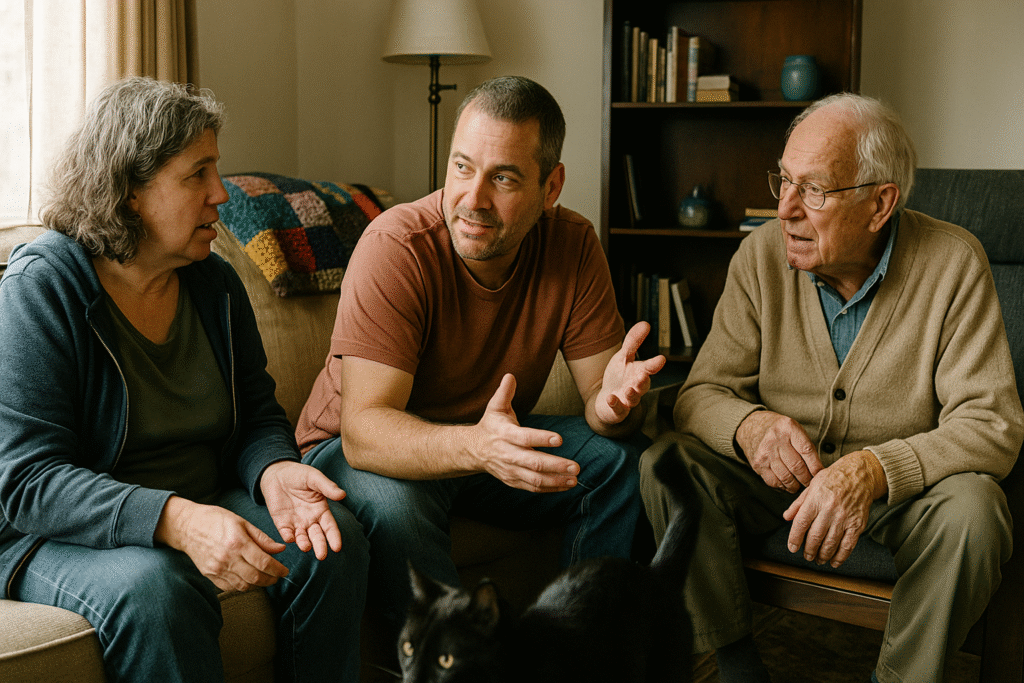Blog Post
Advancing Breast Cancer Care: How Color’s Collaboration with UCSF’s WISDOM Study is Shaping Risk-Based Screening
Color
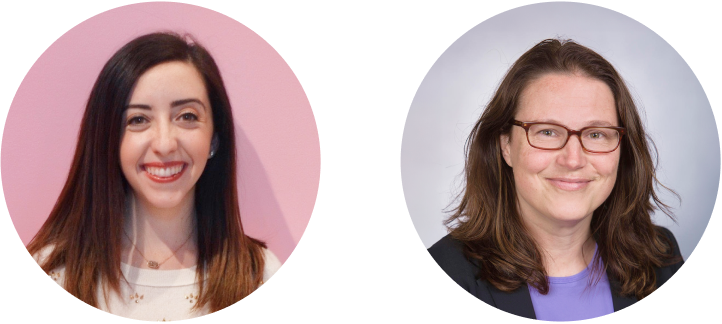
At Color, we’ve spent nearly a decade pushing the boundaries of delivering care by meeting people where they are at, from our early days in genetic testing to our expansion into a comprehensive Virtual Cancer Clinic. As Breast Cancer Awareness Month draws to a close, we’re excited to turn the spotlight onto one of the most transformative partnerships we’ve been part of: our collaboration with Dr. Laura Esserman and the groundbreaking WISDOM Study.
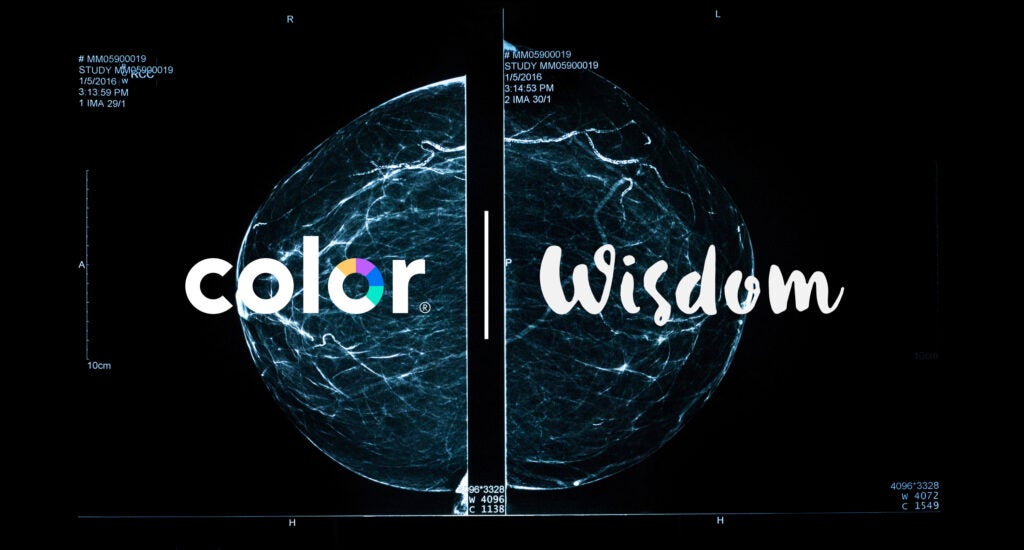
Revolutionizing Breast Cancer Screening: The WISDOM Study
The WISDOM Study (Women Informed to Screen Depending On Measures of risk), led by Dr. Esserman at the University of California, San Francisco (UCSF), and collaborators nationwide, has been at the forefront of revolutionizing breast cancer screening since its inception in 2016. Instead of a one-size-fits-all approach, the WISDOM Study compares two screening methods: annual mammograms for all women starting at age 40 versus a more personalized screening strategy based on individual risk factors like genetics, breast density, and family history.
WISDOM’s goal is to continuously improve our approach to screening and prevention for breast cancer. We know breast cancer doesn’t manifest the same for every patient, and treatments are now personalized based on tumor biology. It is time for that knowledge to be brought into how we approach screening — not everyone has the same risk for developing breast cancer, and we have many tools to help predict who may be at risk for more aggressive types of the disease.
To date, WISDOM has enrolled nearly 60,000 women nationwide, with nearly 30,000 receiving Color genetic testing to provide them with genetic information about their personalized risk. Last year, WISDOM expanded enrollment to include women starting at age 30 (rather than age 40), aiming to assess risk earlier and offer preventive options to those at higher risk. With breast cancer rates rising slightly in younger women, early risk assessment is crucial in determining if screening should begin sooner. Additionally, WISDOM is evaluating polygenic risk, which looks at small genetic changes across many genes. These changes are combined into a polygenic risk score (PRS) that is integrated with the WISDOM risk model, potentially influencing an individual’s overall breast cancer risk.
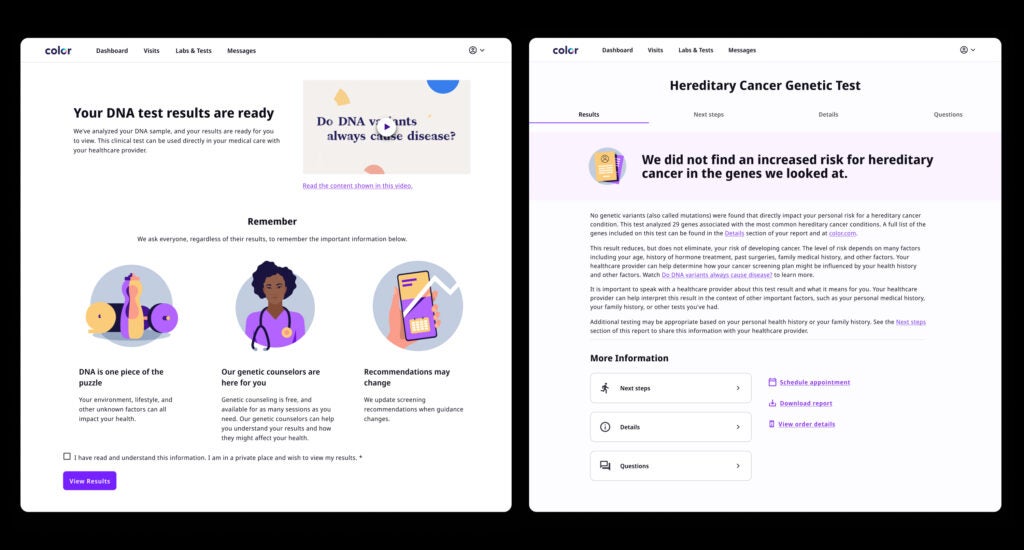
Key milestones & findings from the study so far include:
- Enrollment of someone from every state in the United States, with 30% representing non-White populations.
- 60% of those found to have a mutation in a breast cancer gene did not have a close relative with breast cancer.
- Adoption of a personalized screening approach has not led to increased anxiety or worry about breast cancer among participants.
The Team Behind the WISDOM Study: Driving Innovation in Breast Cancer Care
WISDOM’s multidisciplinary team combines expertise in genetics, primary care, psychology, decision science, breast oncology, pathology, epidemiology, and importantly, community and patient advocates. A few key individuals are:
- Dr. Laura Esserman (UCSF) – Dr. Esserman is the Primary Investigator of the WISDOM Study and is an internationally recognized breast surgeon, oncology specialist, and visionary leader in personalized medicine. She has dedicated her career to revolutionizing breast cancer care, from addressing issues of overdiagnosis and overtreatment to reshaping screening methods to be more individualized.
- Dr. Lisa Madlensky (UCSD) – Dr. Madlensky is the director for the Family Genetics Program at University of California, San Diego (UCSD), and has been a WISDOM co-investigator since the start. She helped shape and evaluate WISDOM’s patient-centered approach to population-based genetic testing. This includes return of results, risk thresholds and guidelines evaluation, and high-risk consultation protocols.
- Dr. Elad Ziv (UCSF) and Drs. Funmi Olopade and Dezheng Huo (UChicago) – This team has led WISDOM’s genetic ancestry-based approach to assessing polygenic risk in partnership with several international consortia. WISDOM has focused efforts over the last several years to increase participation from those of more diverse ancestries to not only improve the study’s risk prediction capabilities and provide more accurate assessments, but also to contribute to growing fields of genetic epidemiology.
“It’s been a wonderful opportunity to learn about how genetic information can be used to guide breast cancer screening – particularly when there are no access or financial restrictions to receiving the genetic test.”
Dr. Lisa Madlensky,
Director, Family Genetics Program, University of California, San Diego
Expanding the Impact: New Phase of the WISDOM Study in 2024 and 2025
As the WISDOM Study enters its next phase in late 2024, the study is set to expand its impact even further. Color is broadening the testing offered to WISDOM participants to include additional cancer-related genes beyond those associated with breast cancer as well as providing additional genetic counseling services to support a growing number of participants. For those identified as being at increased risk, Color will ensure a seamless transition back to the WISDOM Study to access appropriate care and fully benefit from these cancer-risk insights.
Committed to Advancing Cancer Care
The ongoing collaboration of Color and the WISDOM Study is a testament to the power of partnership and innovation in cancer screening, prevention, and care. Color and the WISDOM Study believe that advancing cancer risk assessment requires more than just new technology — it requires breaking down barriers to access. That’s why our collaboration emphasizes making personalized cancer risk assessments available to more women, regardless of their location or background. By providing at-home genetic testing, we’re ensuring that every participant can take advantage of this groundbreaking research and make informed decisions about their health.
With this innovative study, we are working to reshape the future of breast cancer screening. Whether it’s refining risk-based screening strategies, identifying high-risk individuals earlier, or reducing unnecessary interventions, we are committed to improving outcomes for all women. This partnership embodies our vision of a future where cancer care is not just reactive, but proactive — where personalized medicine is the standard, and every woman can receive the care that’s right for her.
